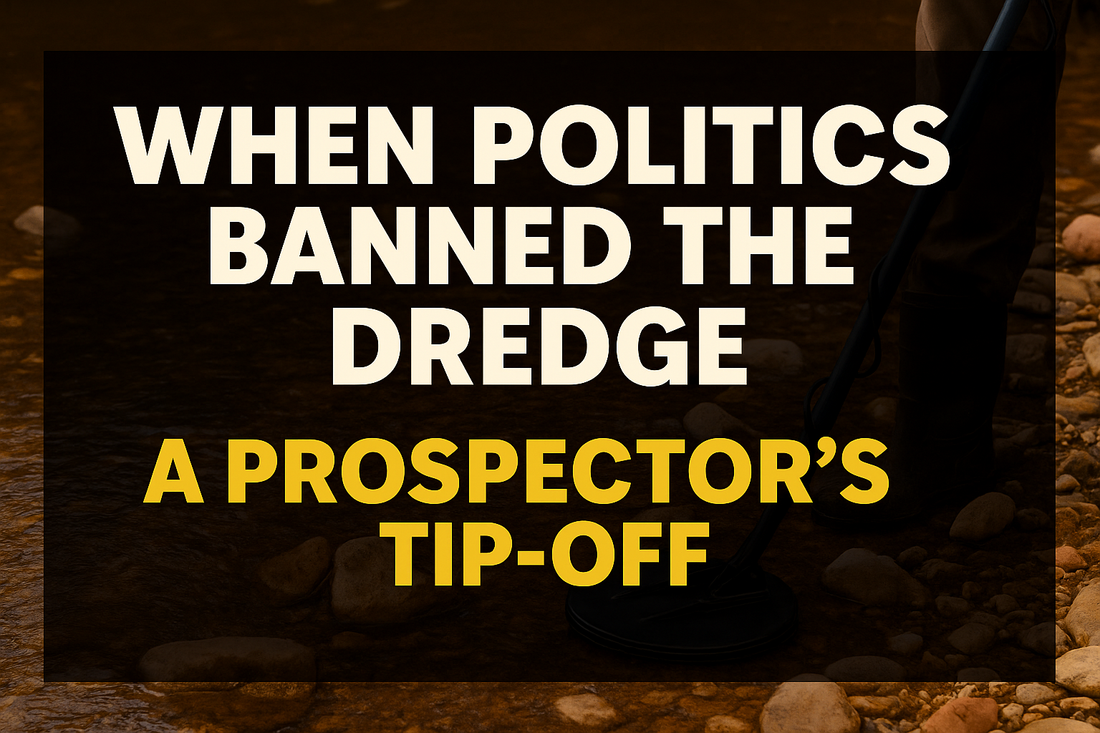
When Politics Banned the Dredge: A Prospector’s Tip-Off
Share
Two weeks ago, we published an article on the history of gold dredging in Australia — how it was embraced by many prospectors through the 1980s and 90s, then swiftly banned under new environmental regulation. That piece sparked a wave of conversation, but one customer story in particular stood out. It perfectly captures both the era’s political tension and the abrupt changes felt on the ground.
A Long-Time Prospector Speaks
Our anonymous contributor shared this account:
“I dredged in several rivers and creeks in central Victoria. Some days I’d pull up half an ounce or more. Just before a State Election, a friend with political ties asked, ‘Still dredging?’ I said yes. He told me to sell — so I did. A week later, it was banned.”
That story isn’t hearsay — it’s emotion, frustration, and lived experience. And it underscores a key point that many community members still repeat: the ban feels like it came less from science, and more from politics.
The Rise and Fall of Gold Dredging
Bucket and suction dredging were common methods among Victorian prospectors earlier in the century. By the 1980s–90s, hobbyists were routinely working creeks with portable gear, recovering sizable gold yields with relative ease. Research shows that bucket dredges once numbered over 100 in Victoria alone during the 20th century, earning a reputation as “desolating dredges” due to their environmental impacts,
These dredges became controversial due to:
-
Disturbance of streambeds
-
Increased turbidity
-
Disruption to aquatic vegetation and fish habitats
-
Damage to culturally significant sites
In response, from the late 1990s to early 2000s most Australian states moved to outlaw recreational suction dredging — including Victoria, where it was banned under the Mineral Resources (Sustainable Development) Act 1990.
Politics Played the Leading Role
Our customer's story lines up with broader regional sentiment — that the bans arrived quickly due to political expediency.
Concerns about the environment, especially fish habitat, were front and centre. Yet many operators held that the fears were exaggerated at best, or politically motivated at worst.
There was limited consultation, little warning, and no “grandfather clause” for hobbyists. Gear that had been used legally for years suddenly became illegal overnight. For many, the move wasn’t about conservation — it was about perception, partisan optics, and securing votes from the environmentalist demographic during an election cycle.
A Legacy That Still Stings
Today the gold dredging era remains a ghost of the past. That once-thriving chapter is now largely relegated to history books, second-hand forums, and personal tales of what used to be.
But the memory lives on — not just in nostalgia, but as a reminder of how gold policy can pivot overnight. It proves that in Australia, as ever:
- Gold and government are deeply connected.
Even centuries after the first rush, political decisions continue to shape what we can and cannot do in the field.
Share Your Stories
Have a memory from the dredging era or your own experience with how politics impacted prospecting in Australia? Share it with us — we’re preserving the untold history of gold-hunting alongside our stories of finds and tours.





